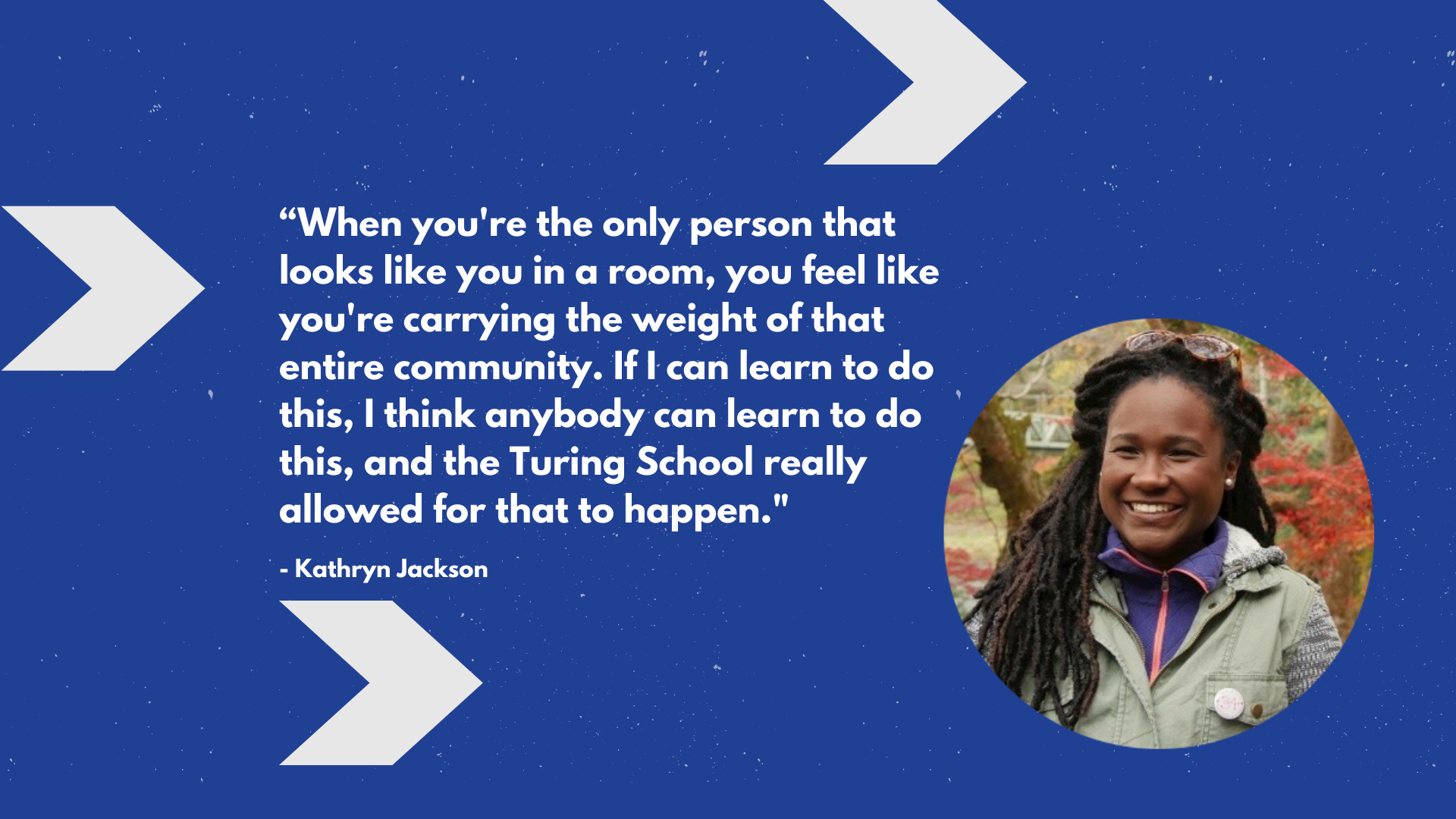Student Spotlight: Discovering an Unexpected Passion for How Technology Works

The date May 26, 2020, is seared into Kathryn Jackson’s mind—and not just because it was her birthday. That Tuesday was her last day as a teacher, a job that had defined her for six years.
It was also the day she began her first module with the Turing School.
Looking back, Kathryn understands how it all started, how she traded a second-grade classroom for a future as something that’s unfortunately still a rarity—a Black woman software developer and engineer.
It began in Harris County Schools in Cataula, Georgia, a small town near the Alabama state line. Fresh off her student teaching and as one of the younger teachers on staff, Kathryn became her school’s default instructional technology specialist. Soon, she and her students were routinely piloting edtech software on behalf of the school district.
The more time Kathryn spent working with technology, the deeper her interest grew. She loved that the tools leveled the playing field for her students who spoke English as a second language—who, she says, could “be as smart as they were in their original language,” which helped other students begin to see them in a different way. But she also loved the new world of technology that had been opened up to her, something she never imagined herself enjoying so much.
“I grew up very traditionally, where boys did this and girls did that.” says Kathryn, who grew up in Savannah, Georgia. “That was my first time really being exposed to a lot of technology, except for being a millennial and playing video games and things like that. That was when I said, ‘I don't want to just use this technology. I really want to understand how it works.’”
After moving to Colorado in 2019, she briefly designed curricula for drone and chip-off forensics courses before taking a long-term substitute teaching job in a second-grade class. That job was scheduled to end in May 2020, so on the advice of friends, she contacted Turing about enrolling in the front-end engineering program, which was starting a new cohort on her last day of school.
The trepidation she felt about being a woman of color in a profession dominated by white men soon dropped a few notches, she says.
“When you're the only person that looks like you in a room, you feel like you're carrying the weight of that entire community,” she says. “I remember the first day, Scott (Ertmer, an associate professor in the front-end program), said, ‘Black lives matter. Our school supports it, and if you don't like it, this is probably not a safe space for you.’”
Kathryn says that “hearing a white man say, ‘We support Black people and if you don't like it, go away’ … I was, like, ‘Okay, that's cool.’”
She joined Shades of Turing, one of Turing’s student circles for anyone who identifies as BIPOC, and eventually became a co-chair. She also became a representative on the student leadership committee, where she used her role to help instructors make the curriculum more accessible to people of color and members of the LGBTQ+ community.
She was surprised by how quickly she bonded with members of her cohort despite the all-digital curriculum: “I was lucky that I was making progress in life during the pandemic, and it was great for me to have that social interaction, which I wasn’t expecting from Turing.”
In just seven months at Turing, she learned to build desktop and mobile web applications, skills that once seemed far beyond the reach of her second-grade classroom. Now, Kathryn lives in the Washington, D.C, area, working as a software engineer at DeepSig, Inc., designing signal security structures for telecommunication companies and government agencies.
“If I can learn to do this, I think anybody can learn to do this, and Turing really allowed for that to happen,” she says.